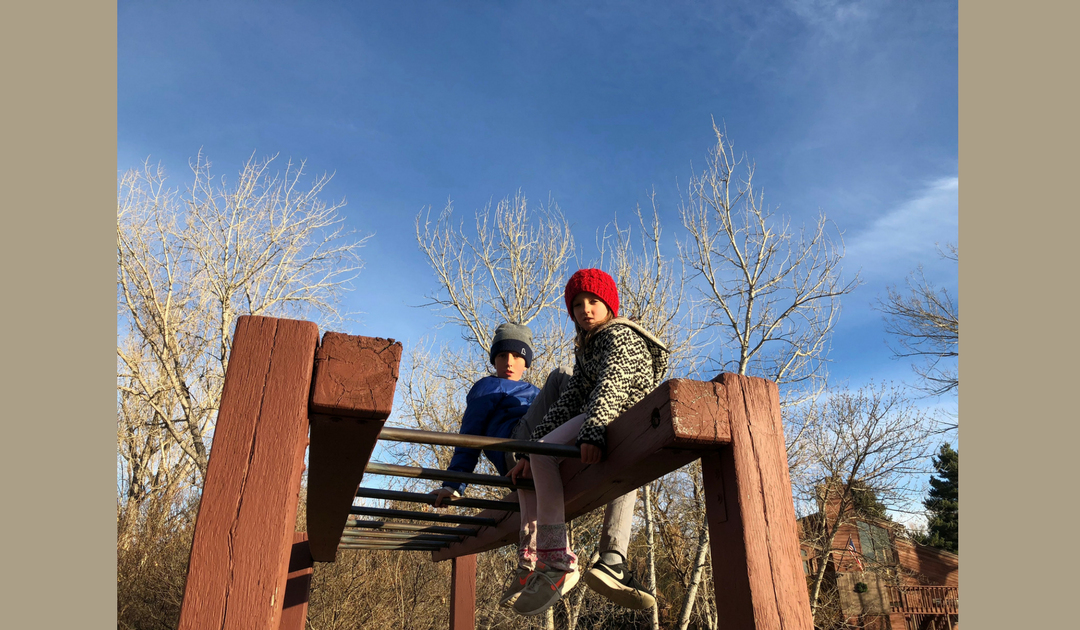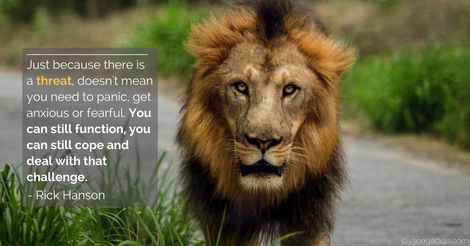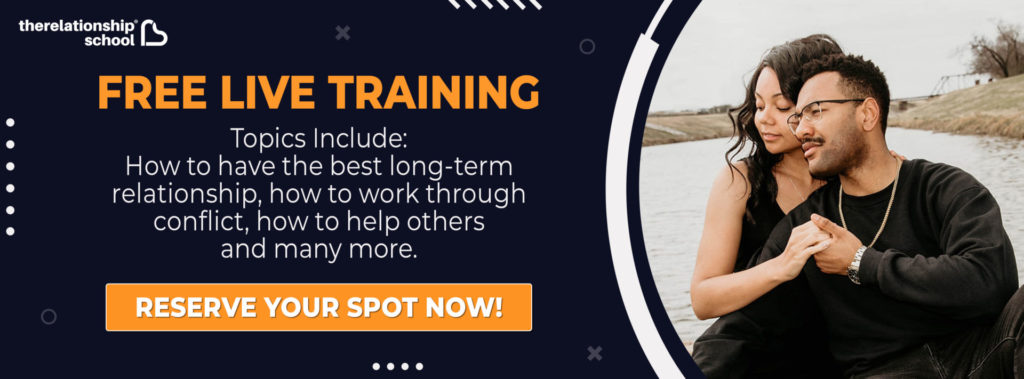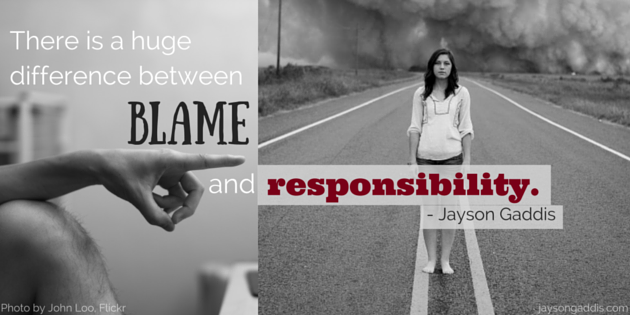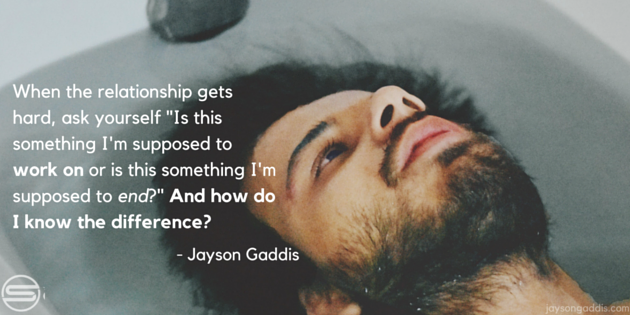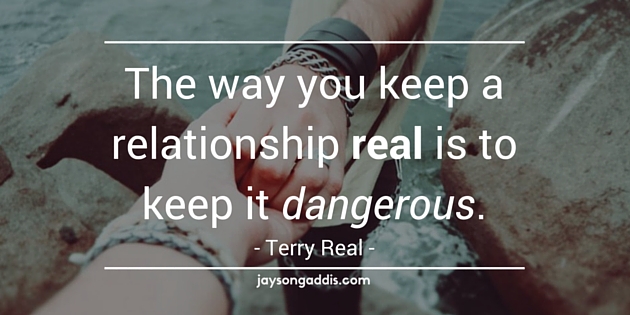3 Steps To Become More Resilient Before, During & After A Fight with Dr. Rick Hanson – SC 67
It is possible to rewire your brain in relationships and build inner strength. In fact, if you don’t work toward this, you’ll be in trouble down the road when the allostatic load catches up to you later in life. In this episode I interview Dr. Rick Hanson. He’s a passionate expert on mindfulness, the brain, neuroscience and relationships. We geek out on the intricacies of the brain but he also brings some very practical tools and insights on how we can improve our relationships by using the natural genius of our mind. Lots of notes to take on this one! Hang in there. It can get dense.
SHOWNOTES
- Why Jayson was anti-marriage until age 34 [2:00]
- How did Dr. Hanson get so passionate about brain science and relationships? [11:00]
- A Native American story about love and hate [13:00]
- Why is so difficult for couples to work their shit out? [17:30]
- What are two lessons from the wiring of our ancestors’ nervous systems? [19:30]
- Two practices to rewire your brain to build your inner psychological strength [22:00]
- How to stop the negativity train of our mind when we’re already triggered [25:00]
- Tips for developing ourselves before we get into a fight with our partners [32:30]
- What happens in our brains when we are triggered by our partner? [46:00]
- How being chronically frustrated, lonely, let down, disconnected impacts the brain and body. [51:30]
- The ratio between positive interactions and negative interactions [60:00]
- A 10-day challenge to the listener on how to radically shift the dynamic in your relationship. [65:00]
HELPFUL LINKS
- Dr. Rick Hanson – Official Site
- Dr. Rick Hanson – Audios, Books, Videos
- Boulder Talk – How To Make Monogamy A Rocket Ship To Your Fulfillment Instead Of A One-Way Ticket To The Death Star – September 8
- Fights Clean, Sex Dirty TV: Early Alerts to Avoiding the Repeat, Ugly or Long-lasting Argument with Jayson Gaddis & Ellen Boeder
- Monogamy and The Smart Couple Facebook Group
- How to Leave A Podcast Review
ARTICLES & PODCAST EPISODES MENTIONED
- SC 35 – 3 Words To Instantly Transform A Fight – With Gaby and Raj
- 10 Agreements BEFORE You Get Into An Argument With Your Partner
GUEST BIO

Rick Hanson, Ph.D., is a psychologist, Senior Fellow of the Greater Good Science Center at UC Berkeley, and New York Times best-selling author. His books are available in 26 languages and include Hardwiring Happiness, Buddha’s Brain, Just One Thing, and Mother Nurture. He edits the Wise Brain Bulletin and has numerous audio programs. A summa cum laude graduate of UCLA and founder of the Wellspring Institute for Neuroscience and Contemplative Wisdom, he’s been an invited speaker at Oxford, Stanford, Harvard, and other major universities, and taught in meditation centers worldwide. His work has been featured on the BBC, CBS, and NPR, and he offers the free Just One Thing newsletter with over 120,000 subscribers, plus the online Foundations of Well-Being program in positive neuroplasticity that anyone with financial need can do for free.
The Cost Of Stress In Your Primary Relationships with Dr. Gabor Maté – SC 63

 Most of us have no idea how damaging relational stress can be. In this episode, legendary medical doctor and psycho-physio-spiritual trailblazer Dr. Gabor Maté brings some very grounded, practical examples of how relationship stress can impact our lives. The result of stress can be seen throughout the web of our life and it’s up to us to learn how to relate and attach well to our fellow humans. I love how this man turns such complicated topics into common sense. If you want a deeper cut about your marriage, children, or any stressful relationship, this episode is a must listen. SHOWNOTES
Most of us have no idea how damaging relational stress can be. In this episode, legendary medical doctor and psycho-physio-spiritual trailblazer Dr. Gabor Maté brings some very grounded, practical examples of how relationship stress can impact our lives. The result of stress can be seen throughout the web of our life and it’s up to us to learn how to relate and attach well to our fellow humans. I love how this man turns such complicated topics into common sense. If you want a deeper cut about your marriage, children, or any stressful relationship, this episode is a must listen. SHOWNOTES
- Why we’re evolutionarily wired to get high off of the honeymoon phase of a new relationship. [2:30]
- What happens when Gabor’s wife forgets to pick him up at the airport. [13:30]
- How our partners are perfectly suited to help us grow. [15:35]
- What happened in Gabor’s childhood that makes his wife a perfect match for him now. [18:00]
- The long-term cost of not dealing with stress. [20:00]
- How parents can be compromised by raising their children. [22:30]
- The link between our relationship health and our physical and mental health. [24:30]
- What’s the best way to deal with our own relational and attachment issues? [34:00]
- Why relational healing modalities are so effective. [38:00]
- What we can learn from pygmy cultures about parenting and relationships. [40:30]
- How relationship can most effectively be taught to children. [42:00]
- The effect of Facebook and Internet on kids. [46:00]
- Jayson gives an action step [50:30]
HELPFUL LINKS
- Dr. Gabor Maté – Official Site
- Upcoming Events With Dr. Gabor Maté
- Book: In The Realm Of Hungry Ghosts
- Book: When The Body Says Now
- Book: Hold On To Your Kids
- Book: The Forest People. A Study of the Pygmies of the Congo
- Relationship School Live Weekend – Boulder, CO – September 16/17/18
- Monogamy and The Smart Couple Facebook Group
- How to Leave A Podcast Review
PODCAST EPISODES MENTIONED
GUEST BIO  A renowned speaker, and bestselling author, Dr. Gabor Maté is highly sought after for his expertise on a range of topics including addiction, stress and childhood development. Rather than offering quick-fix solutions to these complex issues, Dr. Maté weaves together scientific research, case histories, and his own insights and experience to present a broad perspective that enlightens and empowers people to promote their own healing and that of those around them. For twelve years Dr. Maté worked in Vancouver’s Downtown Eastside with patients challenged by hard-core drug addiction, mental illness and HIV, including at Vancouver’s Supervised Injection Site. With over 20 years of family practice and palliative care experience and extensive knowledge of the latest findings of leading-edge research, Dr. Maté is a sought-after speaker and teacher, regularly addressing health professionals, educators, and lay audiences throughout North America and internationally. As an author, Dr. Maté has written several bestselling books including the award-winning In the Realm of Hungry Ghosts: Close Encounters with Addiction; When the Body Says No:The Cost of Hidden Stress (published in the United States as When the Body Says No: Exploring the Stress-Disease Connection); and Scattered Minds: A New Look at the Origins and Healing of Attention Deficit Disorder (published in the United States as Scattered: How Attention Deficit Disorder Originates and What you Can Do About It), and co-authored Hold on to Your Kids. His works have been published internationally in twenty languages. Dr. Maté is the co-founder of Compassion for Addiction, a new non-profit that focusses on addiction. He is also an advisor of Drugs over Dinner. Dr. Maté has received the Hubert Evans Prize for Literary Non-Fiction; an Honorary Degree (Law) from the University of Northern British Columbia; an Outstanding Alumnus Award from Simon Fraser University; the 2012 Martin Luther King Humanitarian Award from Mothers Against Teen Violence; and the 2012 AccolAIDS award for Health Promotion and Harm Reduction, Positive Living Society of B.C.. He is an adjunct professor in the Faculty of Criminology, Simon Fraser University.
A renowned speaker, and bestselling author, Dr. Gabor Maté is highly sought after for his expertise on a range of topics including addiction, stress and childhood development. Rather than offering quick-fix solutions to these complex issues, Dr. Maté weaves together scientific research, case histories, and his own insights and experience to present a broad perspective that enlightens and empowers people to promote their own healing and that of those around them. For twelve years Dr. Maté worked in Vancouver’s Downtown Eastside with patients challenged by hard-core drug addiction, mental illness and HIV, including at Vancouver’s Supervised Injection Site. With over 20 years of family practice and palliative care experience and extensive knowledge of the latest findings of leading-edge research, Dr. Maté is a sought-after speaker and teacher, regularly addressing health professionals, educators, and lay audiences throughout North America and internationally. As an author, Dr. Maté has written several bestselling books including the award-winning In the Realm of Hungry Ghosts: Close Encounters with Addiction; When the Body Says No:The Cost of Hidden Stress (published in the United States as When the Body Says No: Exploring the Stress-Disease Connection); and Scattered Minds: A New Look at the Origins and Healing of Attention Deficit Disorder (published in the United States as Scattered: How Attention Deficit Disorder Originates and What you Can Do About It), and co-authored Hold on to Your Kids. His works have been published internationally in twenty languages. Dr. Maté is the co-founder of Compassion for Addiction, a new non-profit that focusses on addiction. He is also an advisor of Drugs over Dinner. Dr. Maté has received the Hubert Evans Prize for Literary Non-Fiction; an Honorary Degree (Law) from the University of Northern British Columbia; an Outstanding Alumnus Award from Simon Fraser University; the 2012 Martin Luther King Humanitarian Award from Mothers Against Teen Violence; and the 2012 AccolAIDS award for Health Promotion and Harm Reduction, Positive Living Society of B.C.. He is an adjunct professor in the Faculty of Criminology, Simon Fraser University.
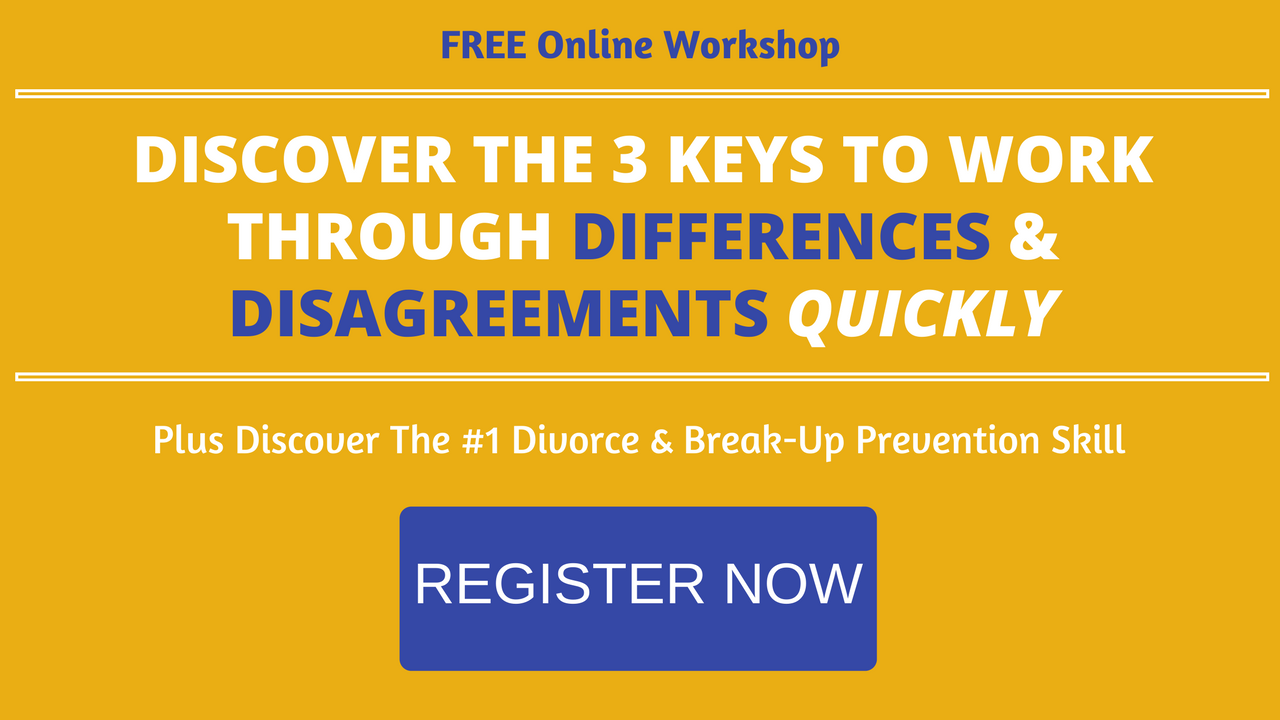
Listener Questions & My Direct Answers – SC 61
In this Q&A episode, there were so many great questions. See the show notes below for a detailed line-up.
SHOWNOTES
- How can I train myself to not go to an extreme dark place when I’m triggered by my partner? [4:30]
- A tool for calming yourself down. [6:00]
- What’s the best way to balance individual freedom in a relationship to avoid power struggles? [6:45]
- How to know when to stay in a relationship and when to leave? [9:30]
- Why is my husband not desiring me and initiating physical intimacy and passion? [11:45]
- My boyfriend surfs porn, a LOT. Is this normal? Should I break up with him? [17:30]
- Should I move back in with my ex? How do I know if he’s forgiven me? [22:00]
- My partner says he’s not sure if he still has feelings for his ex. What should I do? [25:00]
- My old boyfriend and I have been dating on and off for eight years, currently off for a year. What’s the best way to get back together? [27:45]
- The best way to date someone with a mental illness? When do you know if the struggle is too much if they’re not doing the work to get better? [29:45]
- Someone challenges Jayson on saying “I’m sorry.” [32:15]
- How do I get my boyfriend to communicate more often and more openly? [34:15]
- What’s the best way to apply your communication tools with children? Is it the same as with a romantic partner? [35:15]
- What do you think about when someone says “I’m sorry you feel that way”? [38:15]
- Should our partner be our “best friend”? [39:30]
- How do I navigate my fear of enmeshment with my partner’s fear of abandonment? [40:15]
- Jayson’s powerful action step for this episode. [43:00]
HELPFUL LINKS
- Web Class: The 7 Fundamentals To Succeed At Intimate Relationships – July 20
- Book: In the Realm of Hungry Ghosts – Gabor Maté
- Tired Of Overreacting During Fights?
- Monogamy & The Smart Couple – Facebook Group
- How to Leave A Podcast Review
EPISODES MENTIONED
- What To Do When Your Partner Triggers You – SC 34
- How Do I Know When It’s Too Hard? – SC 57
- How To Create Healthy Expectations In Your Relationship – SC 59
- Keys To Mastering Relationships & Life With Dr. John Demartini – SC 60
The One Class We Never Got In School But Should Have
Somewhere in my early 30’s I realized that I missed one of the most important classes I could have taken in school–a class on relationships.
It wasn’t until I broke 7 hearts, burned countless bridges, and ran away from conflict for about 20 years that I realized that I had missed something. (more…)
How Do I Know When It’s Too Hard? – SC 57
Relationships get hard. But how do you know when hard is too freakin’ hard? And, what do you do about it? In this episode my wife and I explore a very common complaint about long-term relationships, especially after the initial honeymoon phase wears off. Are you making your relationship hard or are you making it easy? Believe it or not, you are in the driver’s seat on this.
SHOWNOTES
- How do you know when your relationship is too hard? [5:30]
- The decision Jayson made that was crucial to his relationship. [15:00]
- Does Ellen ever feel that motherhood is too hard? [17:00]
- The perspective that matters most in a relationship [18:45]
- How to work through conflict in a relationship? [20:15]
- What about working through conflict on your own, without your partner or community? [22:30]
- Why it’s not wise to “pick your battles”? [26:45]
- Leave your comment in Monogamy and The Smart Couple Facebook Group
HELPFUL LINKS

